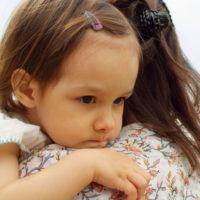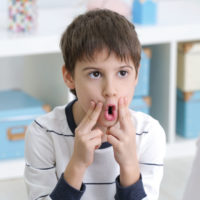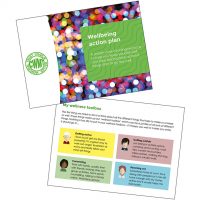Search results
-

Rumination affects mother–infant interactions
In order to view this content, you need to be an ACAMH member. Membership starts from just 11p a day. We hope you consider joining and being part of the advancement of child and adolescent mental health.Read moreCurrent members will need to be registered as a website user and log in, our guide to this simple process can be accessed here.
-

Teaching about Tics
A psychoeducational intervention, in the form of a classroom presentation, can enhance the knowledge and attitudes of peers towards their classmates with Tourette syndrome (TS), according to research by Claire Nussey and colleagues.
Read more -

Child & Adolescent Mental Health: Through a digital lens
Despite the significant increase, availability and usage of mobile devices by children and teenagers, there is still a lack of evidence to support their safety or effectiveness with vulnerable populations.
Read more -

Acceptance and Commitment Therapy (ACT)
Acceptance and Commitment Therapy (ACT) is a trans-diagnostic therapeutic approach, belonging to the broad church of cognitive behavioural therapies (CBTs). With the practice of mindfulness as one of its core processes, the aim of ACT is to enable people to move toward a life with meaning and purpose through values-based action. This workshop is the equivalent […]
- Event type
- Workshop
- Location
- Bristol
-

Headlines about children’s mental health can make dispiriting reading for school leaders
The Charlie Waller Memorial Trust was set up in 1997 in memory of Charlie Waller, a young man who took his own life whilst suffering from depression.
Read more
Disclaimer: This is an independent blog and ACAMH may not necessarily hold the same views. -

Mental health workers have more empathy
Mental health workers have greater empathy than physicians or other professionals, according to a study from Favaloro University, Buenos Aires.
Read more -

Fighting for attention
To present a more complete picture of a highly heritable disorder, The Bridge has spoken to two parents of children with ADHD about the challenges and concerns that it can present.
Read more -

Implementing iThrive? Pick priorities and prepare, says commissioner
iThrive is a care framework that aims to replace the four tiered system of CAMHS provision, by grouping children and young people based on their needs. Initially launched at 10 sites across the UK in October 2015, by April 2017 it had expanded to 44 CCGs. iThrive state that, 30% of young people in England […]
Read more -

Toughened toddlers seek rewards & Toddlers’ temperament is autism early indicator
Two overviews of papers focusing on toddlers. The first on those who grow up in a harsh environment and act assertively at aged two tend to do better than average when solving reward-based problems, but do worse on abstract ones. The second suggesting a new avenue for exploring early diagnosis in autism.
Read more -

The hardest thing to do is say goodbye
“It was an accident,” says Dr Mark Lovell. But what is he referring to?
Read more
